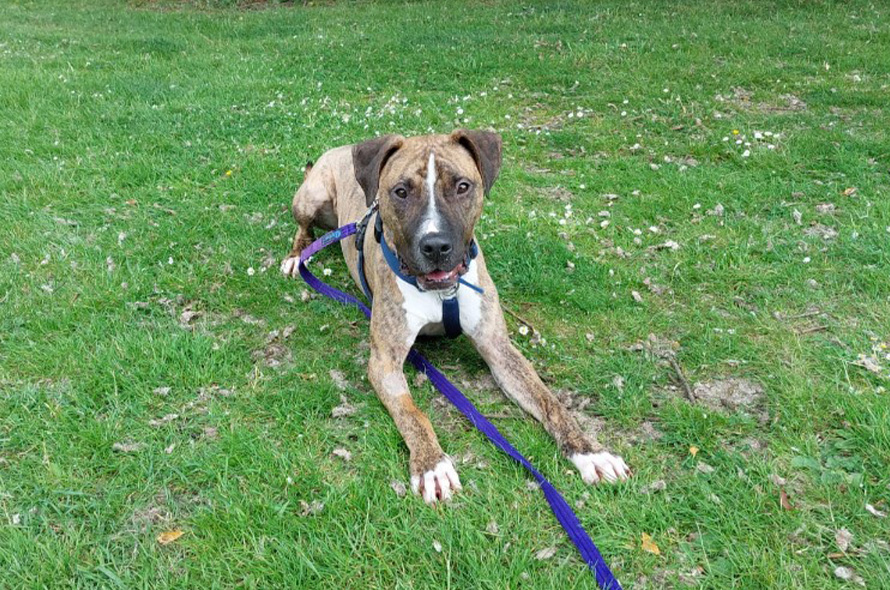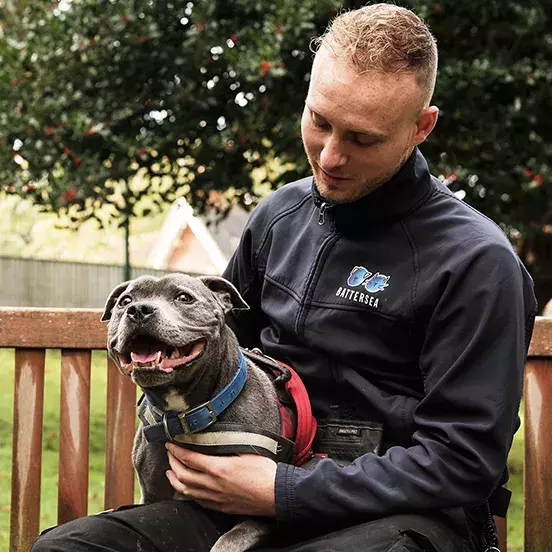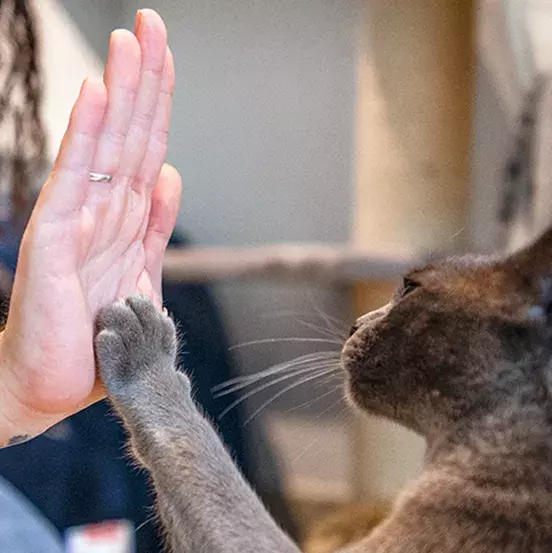Theo was less than a year old when he was brought to our Brands Hatch centre as a stray. He had scarring on his face that suggested he’d had his mouth taped shut at some point.
Theo was very stressed and frantic, as well as having bundles of energy. He was showing signs of being overstimulated, like nipping and mouthing, which is common in young dogs. But it needs a lot of time and understanding to work through, and stop it from becoming more dangerous. So, our expert canine behaviour team stepped in to help get Theo ready to be rehomed.

Theo made great progress and found an experienced family who were happy to carry on his training. After he went to his new home, our team were on hand to support his owners with tips and techniques to help keep Theo calm.
Theo’s family taught him a ‘lie down’ cue to help him relax when he was showing signs of stress. They used toys that help soothe dogs, like scent search games and snuffle mats. And they gave Theo patience and care he needed adjust to his new life.
Chloe Scoones, Canine Behaviour and Training Advisor Lead at our Brands Hatch centre, said: ‘Theo was going through the adolescent stage of his life, when mouthing and nipping is common. It’s a case of preventing it as much as possible, and then having the tools to manage it when it happens. Theo’s behaviour settled, his family absolutely adore him, and they’re incredibly grateful that we supported them.’
Joining the dots between behaviour and safety
Any dog can have behavioural challenges. So it’s important for owners to properly train their dogs and meet their needs, to stop these from escalating.
It’s also vital for everyone to understand what can cause problematic behaviour and aggression in dogs. For example, punishment-based training, a lack of understanding around dog body language, and using dogs as weapons or status symbols.
Take Theo – his mouthing and nipping was typical of a dog of his age. But if it wasn’t addressed, it could have ended up becoming dangerous. That’s why we worked on it straight away.
At Battersea, we’re also working with decision makers, people on the frontline and the public to create an evidence-based, holistic approach to dog control. One that promotes responsible ownership, and can be properly enforced.
How you can help
There are ways to help keep you and your family safe around dogs. Dogs Trust and Blue Cross have lots of useful resources.
You can also sign up to our campaigning newsletter to be the first to know about updates and ways to get involved in our calls for effective, evidence-based approaches to safety around dogs, rather than breed bans.


